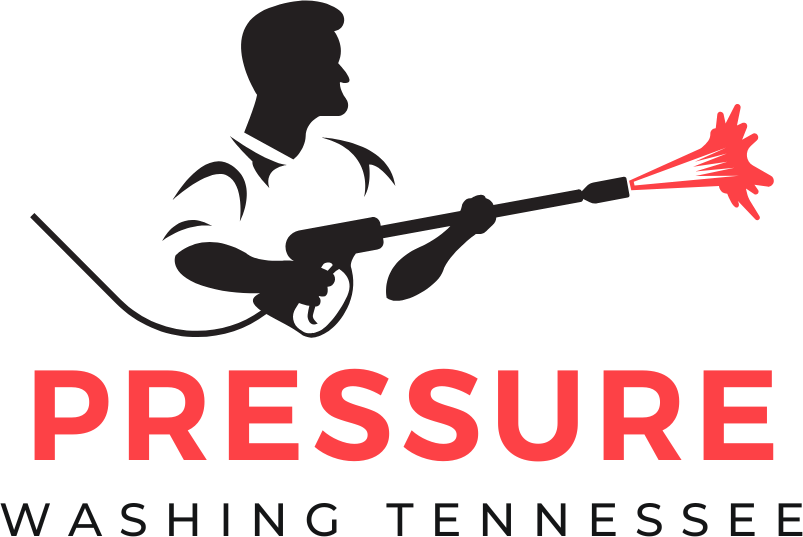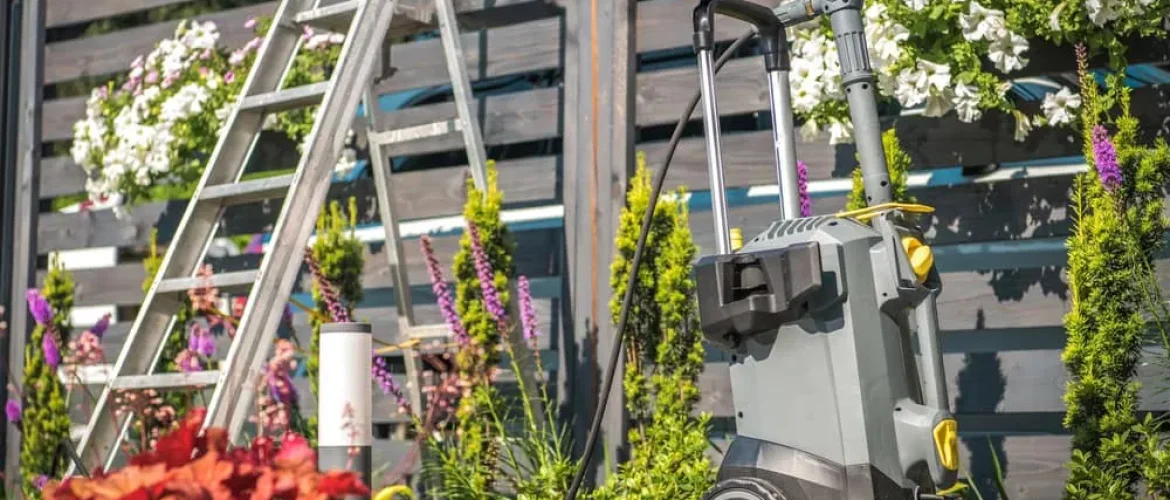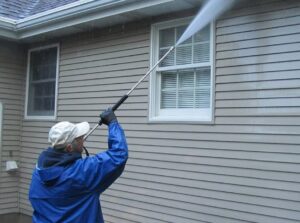When it comes to keeping my Tennessee home looking its best, I know a powerful pressure washer makes all the difference. But with so many choices out there, I’ve often wondered—is a gas or electric pressure washer the smarter investment for my needs? Each promises sparkling results, but the right pick can save me time, money, and hassle in the long run.
I want a solution that tackles tough grime, stands up to Tennessee’s changing weather, and fits my lifestyle. Choosing the best pressure washer isn’t just about power—it’s about making my outdoor spaces shine while getting the most value from every dollar I spend. Let’s break down what really matters so I can make the smartest choice for my home.
Understanding Pressure Washers
Pressure washers make outdoor cleaning quick and efficient, especially when dealing with Tennessee’s mix of mud, pollen, and humidity. Every model breaks up stubborn grime with a stream of pressurized water, but gas and electric versions go about this in different ways.
Key Differences Between Gas and Electric Models
Gas pressure washers pack more power, usually delivering 2,800–4,000 PSI. These units quickly clean driveways, brick, or siding caked with layers of dirt—for example, after a long, wet Tennessee winter. They’re also more portable since they don’t rely on outlets, so I can bring one to every corner of my yard without dragging cords.
Electric models tend to run at a lower PSI, from 1,300–2,000. I’d use these for lighter jobs, like washing patio furniture or rinsing a deck. They’re quieter, turn on with a switch, and typically require less maintenance. Plus, they suit smaller spaces since they don’t generate fumes—handy for neighborhoods with close-set homes.
How Pressure Washers Work
Each pressure washer includes a pump powered by either a gas engine or an electric motor. This pump pushes water through a narrow nozzle, creating a high-pressure spray that knocks grime from surfaces. Adjustable nozzles let me control spray width and intensity. Connecting a garden hose to the washer’s inlet starts the process, so I only need a basic water supply. The result? A focused stream strong enough to blast away dust, mud, or mildew—ideal for Tennessee’s often unpredictable weather and outdoor messes.
Pros and Cons of Gas Pressure Washers
Gas pressure washers handle demanding jobs around Tennessee homes with strength that goes beyond what electric models offer. At the same time, they do bring some trade-offs that influence how and where I use them.
Performance and Power
Gas models blast away tough grime, mold, and mud quickly with higher PSI numbers, typically between 2,800 and 4,000. I can remove years of buildup from siding, driveways, and decks in less time because the water flows with more force. Unlike electric washers, I don’t face power drops when cleaning large, heavily soiled areas.
Portability and Noise
Gas units go anywhere on my property since they don’t tie me to an outlet—helpful when I’m working on fences or outbuildings away from the house. I do notice they’re heavier and larger, making transport a bit more effort. Gas engines also create more noise, which stands out if I’m cleaning early in the morning or near neighbors.
Pros and Cons of Electric Pressure Washers
Electric pressure washers offer several benefits for Tennessee homes, especially when tackling everyday outdoor cleaning tasks. They fit well in smaller spaces and handle lighter jobs with less noise.
Convenience and Ease of Use
Lighter frames and compact sizes make electric models easy for me to move and store—helpful when space is tight or stairs limit access. With automatic start and stop features, using these washers means I just plug in the cord, connect the hose, and squeeze the trigger—no priming or pull-cords needed. Quiet operation keeps outdoor peace even during early morning cleaning or quick touch-ups on the porch. No need to hunt for fuel or deal with gas fumes makes electric pressure washers a simple, straightforward choice.
Maintenance and Safety
Minimal upkeep draws me to electric models since I don’t have to worry about engine oil, spark plugs, or stale gas. Occasional cleaning of the nozzle and hose usually keeps the machine running. Electric power means zero exhaust, so I can safely use the washer near doors and windows without ventilation worries. Built-in GFCI plugs guard against shocks, though I always use a dry, dedicated outlet outdoors for safety. While cord reach can be a limitation, extension cords rated for outdoor use help extend coverage without sacrificing safety.
Factors to Consider for Tennessee Homeowners
Choosing between a gas or electric pressure washer depends on more than just power. Tennessee’s climate, the type of cleaning I need to do, and ongoing energy costs all shape my decision.
Climate and Typical Cleaning Tasks
Tennessee sees humid summers, spring pollen, and muddy winters. Outdoor surfaces like decks, siding, and driveways collect grime quickly in this climate. Gas pressure washers handle thick mud and heavy buildup on large surfaces, such as long driveways or patios over 700 sq ft. Electric pressure washers make quick work of lighter jobs—wiping away pollen from porch furniture, rinsing garden tools, or spot-cleaning fences. When occasional storms leave behind caked-on dirt, higher PSI gas models clear it faster, but I find that for routine upkeep around my home’s outdoor living areas, a compact electric unit meets my needs.
Energy Costs and Environmental Impact
Gas models run on fuel, giving me more power but producing exhaust and noise. A typical gas pressure washer uses 0.3–0.5 gallons of gasoline per hour. With gas prices in Tennessee averaging $3.20 per gallon (AAA, May 2024), long cleaning sessions increase costs. Electric washers plug into a standard outlet and use about 1.5–2.5 kWh per hour, costing less than $0.40 for an hour if local rates average $0.16 per kWh (U.S. EIA, 2024). Electrically powered models create no direct emissions and run quieter, which reduces their environmental impact. For me, the savings on energy and the lower carbon footprint of electric models align better with regular, lighter cleaning jobs.
Making the Right Choice for Your Home
Each home in Tennessee brings unique cleaning needs, so I always look at both my budget and daily habits before picking a pressure washer. Paying attention to both long-term costs and practical features helps me get the most value while keeping my outdoor spaces clean year-round.
Budget and Long-Term Value
Price tags show only a piece of the full cost story. Electric pressure washers typically cost less upfront, with models for light jobs starting around $120 and going up to $300 for higher-end options. Gas models often start at $280 and run much higher for professional-grade versions. Operating expenses also matter since gas washers need regular fuel and oil, while electric models raise my power bill only slightly. Less maintenance with electric units saves me both time and money over the years, and accessories for either type—such as specialty nozzles (usually $15–$40) or longer hoses—can bump up the total investment.
| Washer Type | Upfront Cost | Annual Maintenance | Fuel/Energy Cost | Lifespan |
|---|---|---|---|---|
| Electric | $120–$300 | <$30 | Low | 5–10 years |
| Gas | $280–$700+ | $60–$120 | Moderate/High | 5–8 years (with care) |
Recommendations for Tennessee Residents
Options align best with lifestyle and weather. For homeowners juggling large driveways, decks, and siding stained by pollen or mud, I often see better results with gas pressure washers because of their power and reach. If lightweight, quiet, and compact fits the bill—like when handling patios, furniture, or small walkways—electric models clearly win on convenience. Tennessee’s humidity and frequent storms mean regular, light cleaning keeps outdoor areas looking their best, so electric pressure washers tend to meet everyday needs without much hassle. Whenever long storage or tough stains come up, though, gas units fill their niche. In my experience, I choose my washer model based on the specific outdoor chores I tackle most often and how much I want to spend both now and later.
Conclusion
After weighing all the options I feel confident that the right pressure washer can make outdoor chores in Tennessee much easier and even a little more enjoyable. Whether I lean toward a gas or electric model my decision will reflect my cleaning needs my budget and how much effort I want to put into maintenance.
Every home and homeowner is different so I’ll focus on what matters most for my space and routine. With the right choice I know I’ll keep my outdoor areas looking their best no matter what Tennessee’s weather throws my way.


